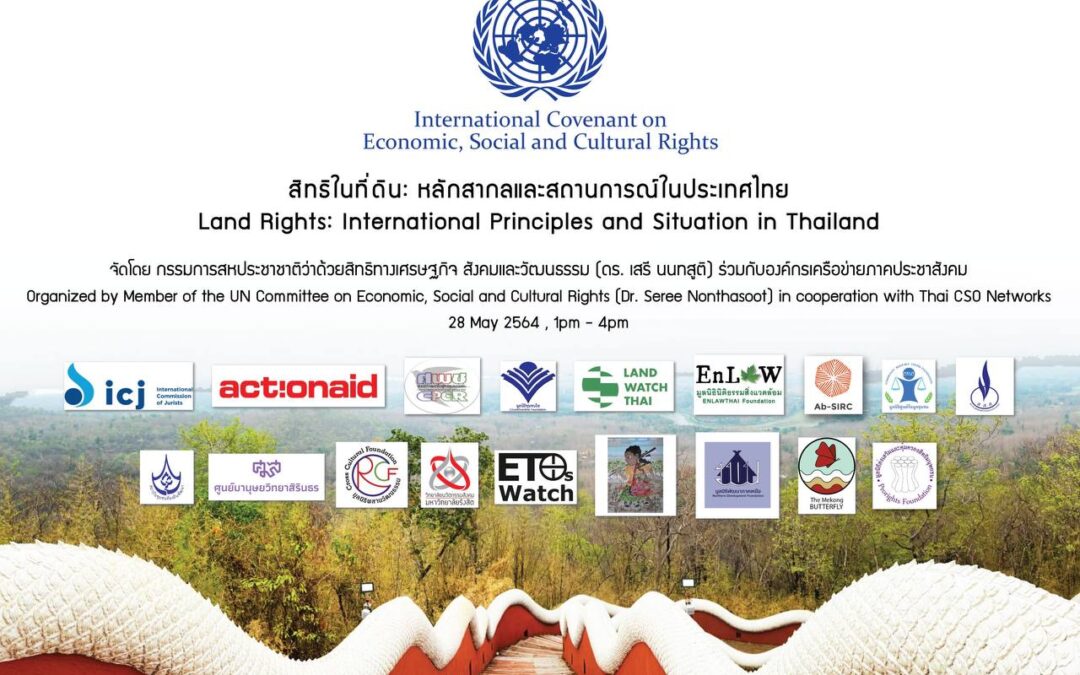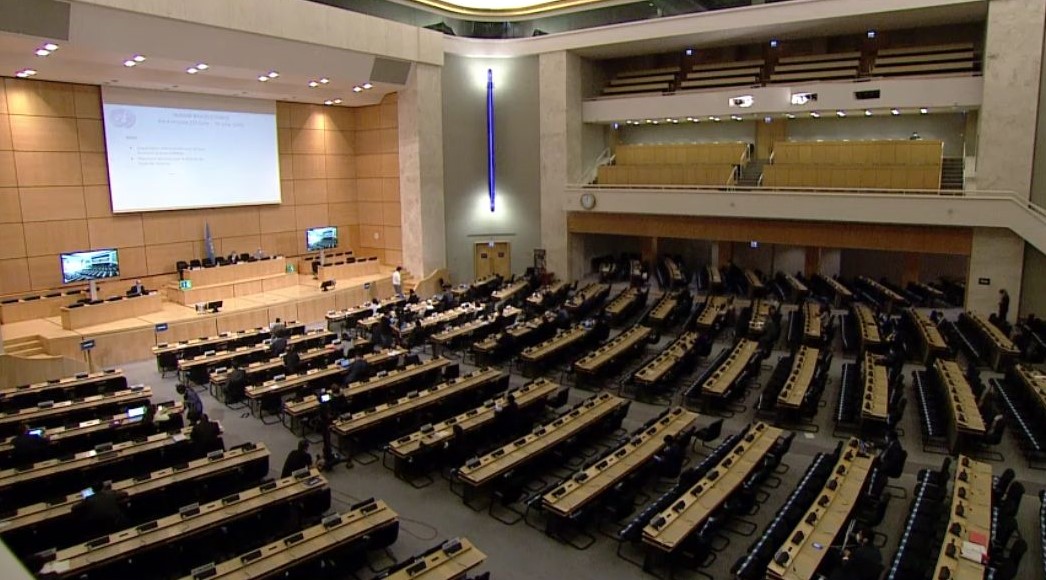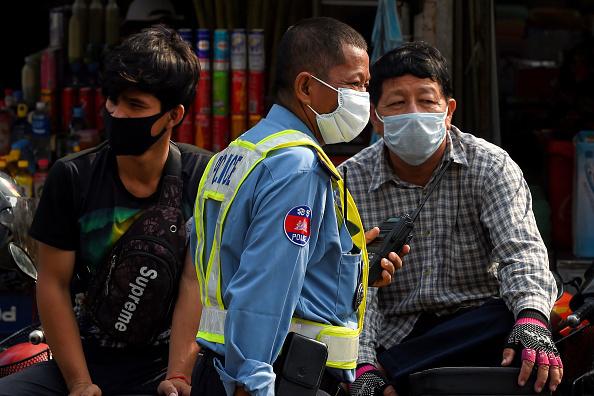
Jun 1, 2021 | Advocacy, News
Thailand’s laws and practices governing the rights of land users may result in unnecessary and disproportionate restrictions on various economic, social, and cultural rights, particularly for forest dwellers and indigenous communities, the ICJ said during discussions last week with members of Thai civil society as well as government authorities.
On 28 May 2021, the ICJ co-hosted a discussion on international human rights law and standards on land rights in Thailand, with 70 members of civil society organizations, human rights lawyers, and academics in attendance. On 4 June 2021, the ICJ spoke at a discussion on the same topic, organized by Thailand’s Ministry of Justice, bringing together 80 governmental officials from several Ministries.
“Thailand’s land regulatory laws do not adequately protect the rights of indigenous people to access their ancestral lands and natural resources and to conduct cultural practices,” said Sanhawan Srisod, ICJ Legal Advisor. “We hope the Thai government will improve its general policies for land use and tenure, especially for indigenous peoples and forest dwellers, in line with its obligations under international law.”
Dr. Seree Nonthasoot, member of the UN Committee on Economic, Social and Cultural Rights (CESCR) from Thailand, spoke at both discussions to introduce participants to the International Covenant on Economic, Social and Cultural Rights (ICESCR) to which Thailand is a party and the role of the CESCR. The CESCR is a body of independent experts from across the world established by ICESCR and tasked with providing authoritative interpretations of ICESCR in its body of jurisprudence.
“The CESCR recommended [that] Thailand […] effectively remove all obstacles to enjoyment of traditional individual and communal rights by ethnic minorities in their ancestral lands […] and ensure that forced evictions are only used as a measure of last resort. These should be addressed without any further delay,” said Dr. Seree Nonthasoot.
Specific issues highlighted by participants in the discussions included:
- Prosecution and Eviction: The use of laws ostensibly designed to counter climate change and forest conservation policies and legislatures, such as the Forest Act, the National Reserved Forests Act and the National Park Act, to prosecute forest dwellers and indigenous communities for trespassing and forcibly evict them from the land belonging to national reserved forests and national parks;
- Participation and Consultation: The inadequate participatory mechanisms and consultations with people affected by land-related policies and practices, in particular the increasing use of online mechanisms as the main platforms for consultation in Thailand, despite the low rate of access to the internet among affected communities;
- Judicial Recognition: The lack of explicit judicial recognition of historical and other indigenous forms of evidence and knowledge in order to establish validity of territorial claims;
- Impact of Tourism: The impact of tourism development projects on communities’ economic, social and cultural rights in land-related contexts, including on their traditional landownership and livelihood practices;
- Compensation and Assessment: The impact of large-scale land acquisitions in areas that had already been occupied or used, without carrying out adequate impact assessments and with inadequate compensation.
Sanhawan Srisod introduced participants to the CESCR’s draft General Comment No. 26, which is open for public comment until 27 July 2021. If a revised General Comment is adopted by the CESCR, it will provide an authoritative interpretation of States’ ICESCR obligations relating to land.
At the meeting’s conclusion, participants discussed advocacy strategies to strengthen Thailand’s legal frameworks once the draft General Comment is adopted by the CESCR.
Further reading
The Human Rights Consequences of the Eastern Economic Corridor and Special Economic Zones in Thailand
Thai Companies in Southeast Asia: Access to Justice for Extraterritorial Human Rights Harms
Joint submissions by ICJ and its partners to the Universal Periodic Review (UPR)

May 27, 2021 | Advocacy, Non-legal submissions
The ICJ today addressed an emergency Special Session of the UN Human Rights Council on the Occupied Palestinean Territories and Israel, calling for accountability for the serious violations of international humanitarian law and international human rights law committed by all parties.
The Special Session is expected to adopt a resolution to address this situation.
The ICJ statement read as follows:
“Madame President,
May 2021 has witnessed the commission of serious crimes under international law by Israel in occupied East Jerusalem and the West Bank, and by Israel and Palestinian armed groups in the context of the recent round of hostilities in the Gaza Strip. As in the past, the conflict exacted a heavy toll on civilians taking no part in hostilities, including more than 65 slain Palestinian children. Unlike the past, those responsible must be held criminally accountable for these crimes.
The International Commission of Jurists calls on the Council to establish a Commission of Inquiry to investigate serious violations of international humanitarian law and international human rights law committed by all parties with a view to:
- Establishing the facts, documenting, and reporting on alleged violations and abuses of international humanitarian law and international human rights law;
- Collecting and preserving evidence of crimes under international law committed in the West Bank, including East Jerusalem, Israel and in the context of the Gaza hostilities; and
- Identifying all those responsible for such crimes.
This Council should call on all States to cooperate with the ongoing investigation of the International Criminal Court. All States, and any mechanisms of this Council, should cooperate and share relevant information with the Commission of Inquiry.
Thank you.”
Contact:
Massimo Frigo, ICJ UN Representative, e: massimo.frigo(a)icj.org, t: +41797499949

May 26, 2021 | News
The ICJ welcomes the ruling by the European Court of Human Rights in the case of B.B.W. and others v. the United Kingdom, setting out important guarantees against mass surveillance online.
On 25 May, the Grand Chamber of the European Court of Human Rights issued its final ruling in this case in which the ICJ intervened. The case deals with the human rights implications of the system of intelligence mass surveillance of the United Kingdom, which was unveiled by the revelations of Edward Snowden.
“The judgment sets out clear guarantees to be respected in order to carry out bulk interception of communications”, said Massimo Frigo, Senior Legal Adviser for the ICJ Europe and Central Asia Programme, “it is a first important step towards ensuring that protection of human rights is as effective online as it is offline. All Member States of the Council of Europe must now ensure that their surveillance systems respect these minimal guarantees.”
In its judgment, the Court recognised the difference between surveillance of individual communications and bulk interception of communications with the use of metadata and introduces a set of procedural guarantees to be respected at initial, intermediary and final stages of bulk data surveillance.
The Court found that these guarantees also apply when a State receives intelligence based on bulk interception carried out by foreign States.
The judgment, however, does not fully address the implications for human rights of States’ participation in close transnational surveillance cooperation such as the system of the “Five Eyes” including the UK, USA, Canada, Australia and New Zealand.
“These transnational surveillance systems entail a higher level of responsibility by States under international human rights law in light of the high risk of bypassing national remedies”, said Massimo Frigo, “We hope the Court will be able to address these important issues in the future to strengthen the protection of human rights online in Europe.”
Contact:
Massimo Frigo, ICJ Senior Legal Adviser, t: +41797499949, e: massimo.frigo(a)icj.org

May 26, 2021 | Advocacy, Non-legal submissions
At a UN dialogue on counter-terrorism, the ICJ warned States and UN institutions against the use of overbroad and ill-defined concepts in the 7th revision of the UN Global Counter-Terrorism Strategy, because they could breach the principle of legality and undermine protections under international human rights law.
The ICJ intervened today in the virtual two-day dialogue with human rights and civil society partners on the theme of “Building a Better Paradigm to Prevent and Counter Terrorism,” organised by the United Nations Office of Counter-Terrorism (UNOCT) and the Permanent Mission of Spain to the United Nations.
The Dialogue brings together Member States, UN entities, human rights representatives, women groups, youth and civil society actors, as well as experts and other stakeholders for a practical exchange of views on how to address terrorism and violent extremism while safeguarding and promoting human rights, in particular the rights of women, children and victims of terrorism.
The ICJ Statement reads as follows:
“Madam Special Rapporteur, Your Excellencies, Colleagues,
Thank you very much for the organizing this consultation.
The International Commission of Jurists has been working for decades to ensure that counter-terrorism measures are compliant with, and do not lead to violations and abuses of human rights and the rule of law.
The ICJ has produced authoritative guidance, such as the ICJ Berlin Declaration on Upholding Human Rights and the Rule of Law in Combating Terrorism of 2004 and a four-year study concluded in 2009 by the ICJ Eminent Jurists Panel on Terrorism, Counter-Terrorism and Human Rights, the result of 16 hearings across the globe.
That Panel concluded that the approach many States had taken in short-circuiting foundational rule of law and human rights principles caused “enduring long term harm.”
The ICJ has been insistent that countering terrorism and protecting human rights are important objectives that not only are not in conflict, but are part of a single shield of protection that States must provide for.
This finding is as valid today as it was then, as the Global Counter-Terrorism Strategy itself recognizes that “when counter-terrorism efforts neglect the rule of law … and violate international law … they not only betray the values that they seek to uphold, but they may also further fuel violent extremism that can be conducive to terrorism.”
In this regard, we are concerned at the possible use in the UN Global Counter-Terrorism Strategy of undefined concepts and terms, like “violent extremism”, “violent nationalism”, political concepts of “far right” and “far left” or “extremism”.
The abusive invocation of these terms carries risks for the protection of freedom of expression, freedom of religion and belief, freedom of association and the right to political participation, all protected under international human rights law.
Critically, from a rule of law perspective, legal certainty is a key principle of human rights law that informs the requirement that any legitimate restrictions of human rights including when countering terrorism must be prescribed by law.
Any undefined or widely defined concept of terrorism or extremism should not be promoted or applied in international instruments, standards or strategies, that, where incorporated into national laws and practice, would lead to violations of this international human rights law violations.
In this regard, we share the assessment by the Special Rapporteur on the promotion and protection of human rights while countering terrorism in her 2020 report to the UN Human Rights Council (A/HRC/43/46) and by the OHCHR in its Report on best practices on countering violent extremism (A/HRC/33/29, para. 19).
Concepts like “violent extremism”, nationalism, political opinions and other forms of religious, ethnic, or other belief or opinion, however extreme, cannot be part of the GCTS, as they are otherwise protected by international human rights law guarantees to protect the rights to freedoms of expression, religion or belief, and/or of association.
Furthermore, their insertion would water down the anti-terrorism focus of the strategy and lead the way to the application of very pervasive measures clearly restrictive of human rights for conduct that is not linked to terrorism.
The Global Strategy should focus exclusively on countering terrorism. Any more expansive approach will risk leading to measures in breach of human rights law and, therefore, of the founding values of the UN under article 2 of the Charter.
I thank you.”
(The ICJ Statement is at minute 2:48:21)
ICJStatement-OCTSpainVirtualDialogue-SessionI-final (download the statement)
Contact:
Massimo Frigo, ICJ UN Representative, e: massimo.frigo(a)icj.org, t: +41797499949

May 25, 2021 | News
The ICJ joined other international human rights organisations to call on the Cambodian government to immediately stop its assault on freedom of expression in the context of the COVID-19 pandemic.
In recent months, the government has warned against public criticism of its actions, prevented independent journalists from reporting on the pandemic, prosecuted individuals for criticising the inoculation campaign, and threatened journalists and social media users with legal actions on the spurious grounds of provoking “turmoil in society.
While Cambodia was spared from high numbers of severe COVID-19 cases in 2020, beginning in February 2021 there has been a spike in cases to which the government responded with disproportionate and unnecessary measures in violation of Cambodia’s international human rights obligations. This includes a campaign against freedom of expression that further constricts media freedom and promotes fear and self-censorship in the country. These measures serve to undermine, not advance, efforts to stop the spread of COVID-19.
The Cambodian authorities placed a de facto ban on independent reporting in Phnom Penh’s red zones—areas deemed to be high risk for COVID-19 transmission. On 3 May 2021, the Ministry of Information announced that only state media or journalists invited by the government would be permitted to report from red zones. The next day, the Ministry of Information issued a letter warning journalists not to disseminate information that could “provoke turmoil in society” and threatening legal action against those who disobey. The letter followed viral livestream footage from multiple Facebook news outlets of long queues of COVID-19 patients outside government treatment centres.
The government’s campaign to silence critical commentary has extended beyond journalists to ordinary people, in a manner incompatible with international human rights standards.
In a press release dated 1 May 2021, the Government Spokesperson Unit demanded the immediate cessation of social media posts intended to “provoke and create chaos” in the context of the COVID-19 pandemic, referring to such posts as “acts of attack” that must be punished. The press release concluded by praising the efforts of government officials to curb the spread of COVID-19 but did not provide any legal justification for imposing these possible restrictions on the right to freedom of expression.
On 30 April 2021, Kandal provincial authorities warned farmers in Sa’ang district not to post images of vegetables spoiling in their fields due to the closure of markets, stating that such communications are bad for morale. One farmer, Tai Song, was pressured by the provincial authorities to sign a document agreeing not to post such content again after he shared a photo on Facebook showing his vegetables rotting and stating that he had to clear and throw away his crops.
The Cambodian authorities have arrested dozens of individuals for expressing critical opinions about the government’s COVID-19 response, including at least six individuals for their criticism of the government’s vaccination campaign. One Chinese journalist, Shen Kaidong, was subsequently deported for publishing a story deemed ‘fake news’ in which multiple Chinese nationals reported receiving a text offering them the Sinopharm vaccine for a service fee.
Authorities have also prosecuted at least three individuals—Korng Sambath, Nov Kloem, and Pann Sophy—for posting TikTok videos criticising the use of Chinese-made vaccines under the new, overly broad and vague Law on Measures to Prevent the Spread of COVID-19 and other Serious, Dangerous and Contagious Diseases (the COVID-19 Law).
These actions are consistent with the government’s systematic and relentless crackdown on freedom of expression and information spanning far beyond the beginning of the COVID-19 pandemic. This latest surge contributes to the government’s broader efforts to silence all critical voices in Cambodia.
The right to freedom of expression is protected by Article 19 of the International Covenant on Civil and Political Rights, to which Cambodia acceded in 1992, and by Article 41 of Cambodia’s Constitution.
Protecting public health is the grounds on which the government is purporting to restrict freedom of expression. While there is a legitimate need to counter the spread of misinformation online to protect public health during a pandemic, this objective must be provided by a clear and accessible law and pursued using the least intrusive means, rather than unnecessary and disproportionate measures like unwarranted arrests, detentions, and criminal prosecutions.
In its General Comment 34, the UN Human Rights Committee emphasised the essential role of the media in informing the public and stated that “in circumstances of public debate concerning public figures … the value placed [on] uninhibited expression is particularly high.” A 2017 Joint Declaration of four independent experts on freedom of expression stressed that “general prohibitions on the dissemination of information based on vague and ambiguous ideas” are incompatible with international human rights standards.
Download
To read the full statement with a list of co-signatories, click here.









